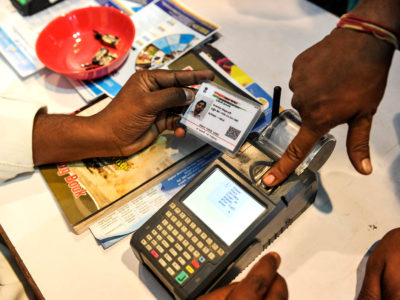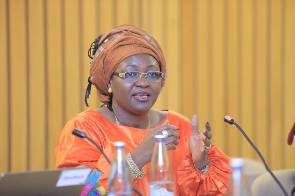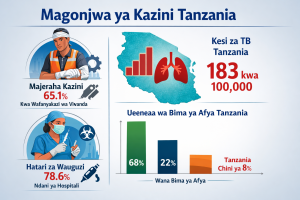
AfricaNenda Joins the Race to Bank Africa’s Excluded as Fintech Start-Ups Flex Muscles
By Muoki Musila
Digital Financial Services Start-ups
The African Union Commission entered into a partnership with AfricaNenda to support an advocacy program in support of the Digital Transformation Strategy for Africa (2020-2030) which is seen as a gateway to an innovative, inclusive, and sustainable Africa. This is a timely initiative when Africa is making progress on enhancing intra-African trade through the African Continental Free Trade Area with digital financial services at the center of it. Digital money handling has been and will be instrumental in increasingly boosting economic activities, and transaction efficiency, reducing transaction costs, and enhancing youth and women’s participation in trade and investments.
A recent report listed six fintech start-ups as the majority among Africa’s top 20 future tech champions offering neobanks, business management solutions for small sellers, a multi-channel money transfer, and simplified debt collection tools. Digital financial services are seen as a critical driver of financial inclusion in the continent at a time when making Africa a meaningful and proportionate shareholder of the global digital economy is a priority. Therefore, it is time the AfCFTA, regional trade blocs, governments, and the private sector turn to such start-ups to spur increased financial inclusion and support efforts to create a single continental market.
Reaching Africa’s Excluded

While the AfCFTA targets 1.3 billion people as part of its market, the inclusion of all economically active individuals in the financial system is key to facilitating trade and economic growth across the continent. Over 350 million adults in Africa are financially excluded living cash to cash without the security offered by a financial account, credit cards, or lending facilities. While most banks in Africa adopt bureaucracies for one to create an account, mobile money is an alternative, even in rural areas for accelerated financial inclusion in the continent.
The exclusion rates call for efforts in providing solutions, albeit through private sector investment, to accelerate the mobile money journey and digital solutions, particularly allowing the unbanked to access savings, ease of money transfer, and credit services for customers. Continued support for the fintech and social enterprise start-ups for digital financial services is a much-needed boost to innovation for banking the poor. With over 500 African Companies providing financial technology support and over 640 technology hubs in the continent, Africa’s intra-trade growth is now closer to a reality than ever.
“… digital solutions will continue to be an invitation for more people and communities to fully participate in the economy and thus benefit from their talents and resilience.”
It is therefore imperative that collaborations between stakeholders in Africa’s free trade area agreement depart from serving the privileged part of the population alone. To fully and positively impact the unbanked, there is a need to provide incentives, regulations, and policies that address the needs and challenges of the unbanked. This not only addresses the needs of individual consumers but also supports money circulation among small traders and especially the negatively affected women and youth.
Limited Opportunities
While the world is increasingly relying on digital connectivity, Africa’s population remains excluded and trapped in a cycle of poverty, and limited opportunities and consequently ends up being denied economic empowerment and social development opportunities. As the AfCFTA continues to engage the private sector on investment, enhancing digital infrastructure investment, especially in rural areas is a priority. The growth of the sector must therefore be approached as a key to digital financial transformation that will impact all sectors of the economy spurring economic growth and development.
The partnership between the African Union Commission and AfricaNenda is therefore a step in the right direction to enhance the digital public infrastructure to support digital financial services in Africa and associated opportunities. However, in addition to advocacy efforts, policy harmonization for Africans will lead to coordinated efforts for digital financial solution adoption. The partnership is therefore necessary for implementing the roadmap of the Digital Transformation Strategy for Africa (2020 – 2030) to support inclusive instant payment systems. This is also an ideal framework for supporting collaboration between governments, central banks, regional organizations, the private sector, and development institutions in inclusion efforts.
By reaching the millions excluded from the financial systems, digital solutions will continue to be an invitation for more people and communities to fully participate in the economy and thus benefit from their talents and resilience. This is also a call to the private sector and private sectors to take advantage of supporting policies to create more solutions around instant payment solutions in the continent.
However, AfCFTA’s role in supporting the efforts, and especially in removing existing barriers in the Fintech industry is significantly conspicuous. The success of AfCFTA relies heavily on the availability of robust digital infrastructure and inclusive financial systems. Without these foundations, the full potential of AfCFTA cannot be realized, and the aspirations of creating a single successful African market may remain elusive.
Inclusive and Instant Payments
One of the key benefits of this partnership is its focus on inclusive instant payment systems. These systems have the potential to revolutionize financial transactions in Africa, providing a safe, efficient, and affordable way for people to access and use financial services. By promoting the adoption of these systems, such initiatives can help reduce reliance on cash and informal providers, which is costly, risky, and excludes many from the formal economy.
It is therefore imperative that African governments, regional organizations, the private sector, and development institutions support the AU and AfricaNenda initiative. By doing so, they can help create an enabling environment for digital financial services to thrive, driving economic growth, and unlocking Africa’s full potential.
The partnership between the AU Commission and AfricaNenda represents a crucial step towards achieving financial inclusion in Africa and supporting the aspirations of AfCFTA. It is a call to action for all stakeholders to come together and support this initiative, as it has the potential to transform the lives of millions of Africans and create a more prosperous future for the continent as a whole.
Muoki Musila is an Kenyan based economist. These are the writer’s own opinions and do not necessarily reflect the viewpoints of Liberty Sparks. Do you want to publish in this space? Contact our editors at [email protected] for further clarification.



